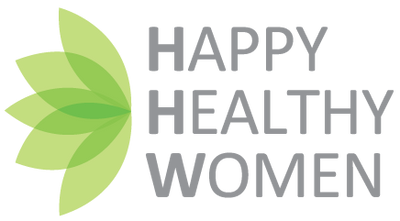Did you know that tracking your fertile window is crucial in increasing your chances to get pregnant? Your fertile window is the time period of your menstrual cycle that has the greatest chance of conception. This time period is known as 5 days before ovulation, as well as the day of ovulation. Understanding your ovulation not only gives you insight into your fertile window, but also helps you gain a deeper understanding of your reproductive health. You can track your
ovulation using a variety of methods, such as OPK kits, cervical mucus, and BBT monitoring.
1. Ovulation Predictor Kits (also known as OPK kits) detect the surge in luteinizing hormone (also known as LH). LH is secreted from the pituitary gland just before ovulation, and creates this surge about 24 hours before ovulation occurs. It is best to use OPK kits starting on Day 11 of your menstrual cycle until you get a positive and then a negative test. Generally, you should get a positive OPK test result the day before you ovulate. When taking this into account, the best time to have intercourse is the day you get a positive OPK result and the day after.
2. Cervical mucus is a gel-like fluid that gets released from the cervix. Due to the increase
in estrogen, this triggers the cervix to produce a fertile mucus. This ideal cervical mucus at ovulation should appear as a clear, egg-white, slippery, or stretchy mucus. It can appear between Day 10-15 of the menstrual cycle. When it does appear, it indicates that ovulation has occurred. It is best to track cervical mucus over the month consistently, to help you indicate when ovulation occurs. When taking this into account, the best time to have intercourse is on the day you notice this egg-white stretchy cervical discharge.
3. Basal Body Temperature (also known as BBT) involves measuring your resting body temperature. Progesterone is our reproductive hormone that increases in the second half of our menstrual cycle (our luteal phase), resulting from ovulation. When ovulation occurs, the corpus luteum produces progesterone and this increases our body temperature. Just before you notice the increase in your body temperature, you will note a small dip in body temperature. This brief body temperature decrease represents ovulation. When utilizing BBT tracking to confirm ovulation, you are looking for increases in your body temperature; this can be a 0.5 degree difference. Ideal timing to measure
your body temperature is in the morning, upon waking up and before getting out of bed. It is important to measure at a consistent time every day to yield accurate findings. It is ideal to use a thermometer that has 2 decimal points to help you note small changes to your body temperature. When taking this into account, this method doesn’t tell you when to have intercourse, but it will confirm that ovulation has occurred. The best time to have intercourse would be the day before you notice your body temperature rising.
Another tracking method is phone apps, such as Flo Health, Ovia, and Glow Fertility Tracker. Inputting information on these apps for at least 3 months, can provide insight on your cycle length and ovulation window. However, these apps may not be 100% accurate, and should not be used solely to predict ovulation. It is best to combine all the information gathered on multiple tracking methods to provide you an accurate picture on your fertile window.
Tracking your ovulation provides you information on optimal timing for intercourse, information on your overall reproductive health, helps you assess for any hormonal imbalances, and gives you a clearer picture of your fertile window. When optimizing your fertility, knowledge is power!
Let’s share this knowledge to support your fertility and overall reproductive health.

Dr. Ishani Patel is a board certified Naturopathic Doctor who has a clinical focus in women’s health, hormones, digestive health, and autoimmunity. She is dedicated to helping her patients determine the root cause of their health concerns, help them find balance in their life, prevent disease or a worsening of their health conditions, and help them live their optimal state of health.
You can connect with Dr. Patel through her website drishanipatelnd.com, by email at ishanipatelnd@gmail.com, or reaching out to her on Instagram @drishanipatel.nd.
Comments will be approved before showing up.
